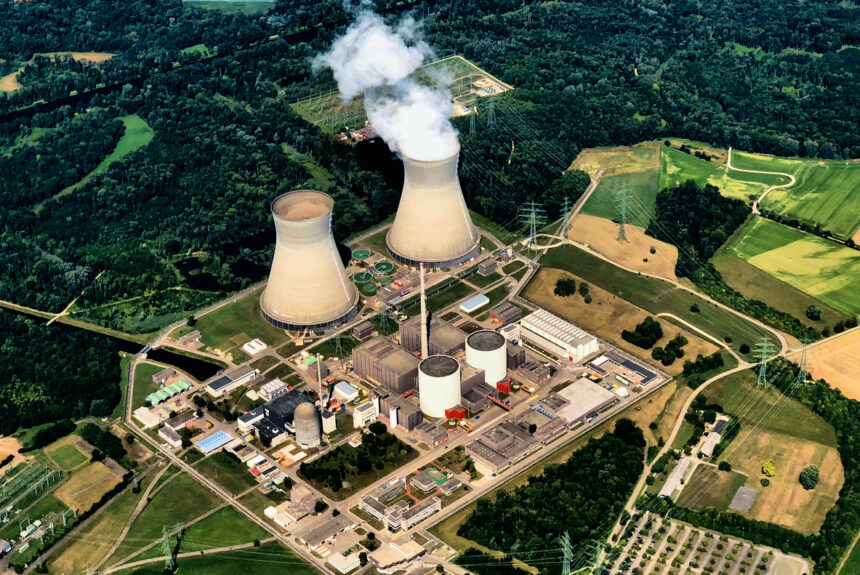With overwhelming bipartisan support, the House of Representatives recently passed the Atomic Energy Advancement Act (H.R. 6544). Led by Representatives Jeff Duncan (R-S.C.) and Diana DeGette (D-Colo.), the bill includes several meaningful reforms to advance nuclear energy as a clean, dependable power source.
>>>READ: NRC Approves First Non-Water-Cooled Reactor in More than 50 Years
Congressman Duncan emphasized, “Expanding nuclear energy and increasing deployment of American nuclear technology both here and abroad is essential for reducing emissions; providing reliable, affordable, clean energy to Americans; and building durable economic and strategic relationships around the world.”
Passing by a vote of 365-36, key provisions of the bill include:
- Consideration of the benefits of nuclear power. One of the main criticisms of the Nuclear Regulatory Commission (NRC), the government body responsible for licensing and permitting nuclear plants, is its risk aversion. A culture of overly stringent standards has increased costs, delayed the deployment of safe nuclear power, and failed to accurately communicate risk. Having a better risk-informed process is necessary, but broadening the scope of the NRC’s mission to include how nuclear power improves the general welfare and benefits society will help demonstrate the immense economic and environmental benefits that nuclear provides, weighed against its very small risks.
- Modernized licensing and permitting. One of the challenges for advanced nuclear technologies is an unclear and bureaucratic licensing and permitting process. Despite charges from Congress for the NRC to develop a technology-neutral, risk-informed, and performance-based pathway, the Commission has thus far missed the mark. This has left innovative nuclear companies frustrated and in limbo, slowing the deployment of new reactors. H.R. 6544 requires the NRC to provide a more predictable licensing process, examine the potential for nuclear at brownfield sites, adopt quicker milestone metrics, and create a more efficient environmental review under the National Environmental Policy Act.
- Reduced fees and advanced reactor awards. H.R. 6544 would reduce the applicant fees assessed and collected by the NRC for advanced reactor technologies. The bill would also establish awards that cover fees for five first-of-a-kind nuclear technologies and uses. While these provisions move the fee structure in the right direction, it would be further improved if all application and safety costs shifted from the applicant to the federal government. The provisions of nuclear safety are a public good and thus the costs should be borne by the taxpayer.
- Strengthened NRC capabilities. Attracting and retaining talent and using specialized expertise will help the NRC function more efficiently. The bill would empower the NRC Chairman to increase compensation above the standard government pay structure, provide bonuses, and engage with outside experts and consultants. Such flexibility is similar to what some other agencies like the Securities and Exchange Commission have to attract talent. Former NRC Commissioner Jeffrey Merrifield noted that such authority should be determined by the full commission rather than solely by the Chairman.
- Stronger global cooperation and competitiveness. Another strength of the bill is that it encourages global nuclear cooperation with America’s allies and provides opportunities to expand America’s nuclear leadership abroad. More specifically, the bill would foster collaboration, help promote U.S. safety standards, study supply chain risks, and better coordinate commercial nuclear imports and exports. It would also lift restrictions on investments in U.S. nuclear technology by allied countries. American and allied nuclear technologies compete with Chinese and Russian nuclear reactors. With many countries committing to triple nuclear energy capacity by 2050 at COP28, U.S. leadership can help the world improve energy access and decarbonize without having to rely on countries that are hostile to democracy and freedom.
>>>READ: Bipartisan Tax Agreement with Immediate Expensing Will Kickstart Innovation
Though there are notable differences, both chambers have now passed comprehensive pieces of nuclear legislation with bipartisan support. The proposed reforms will make American nuclear energy more competitive and advance the goals of energy access, national security, and emissions reductions. The longer policymakers wait to fix the bureaucratic obstacles that hinder nuclear energy innovation, the more ground the U.S. will cede to China and Russia.
The views and opinions expressed are those of the author’s and do not necessarily reflect the official policy or position of C3.
